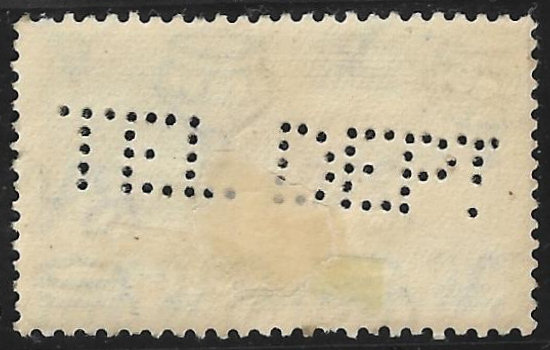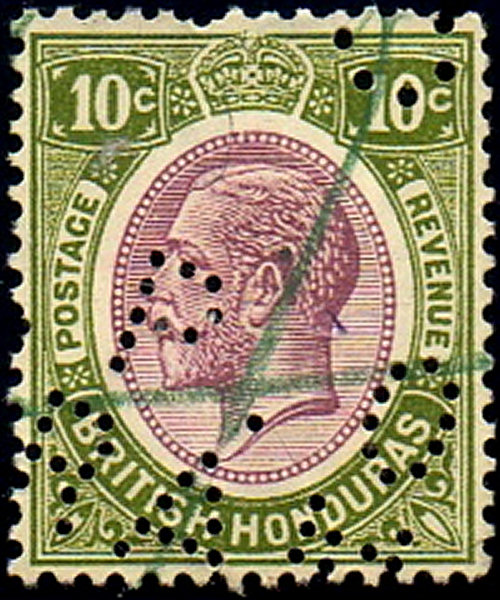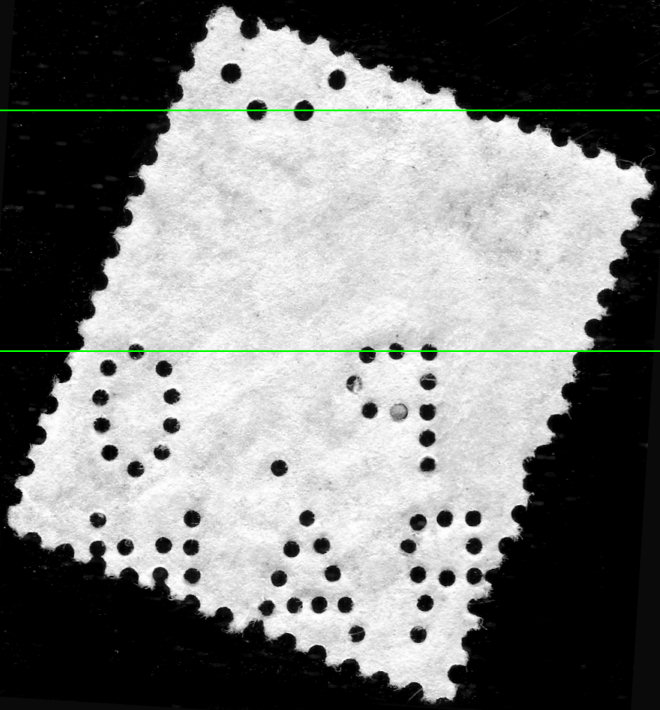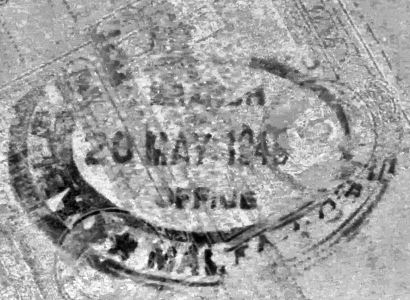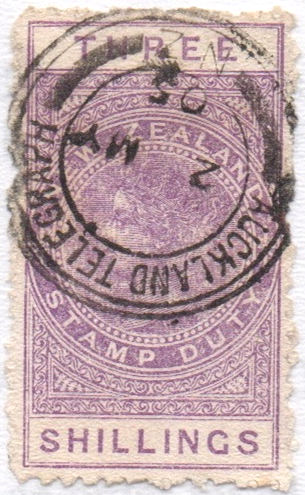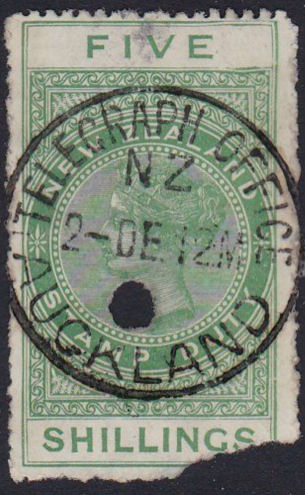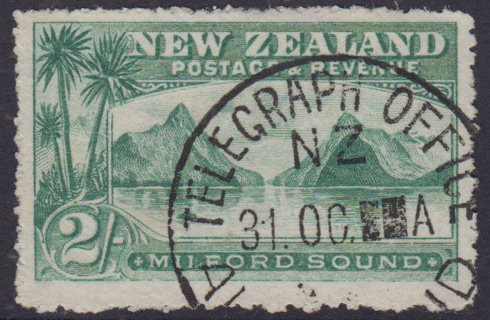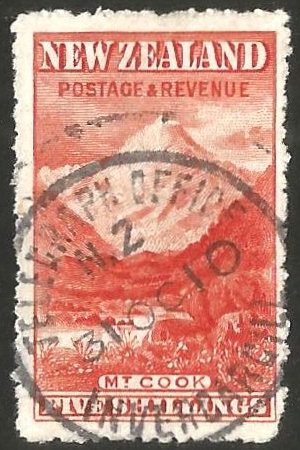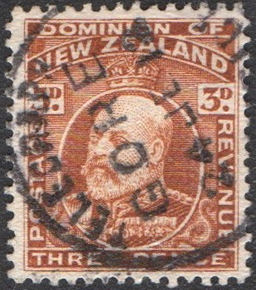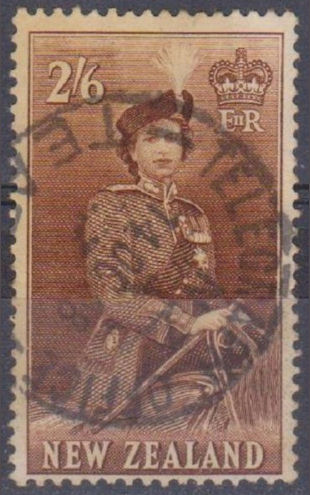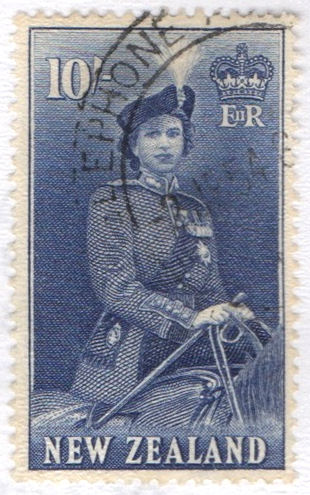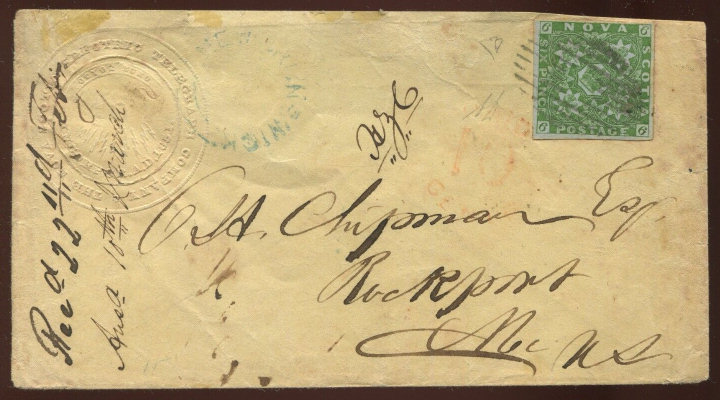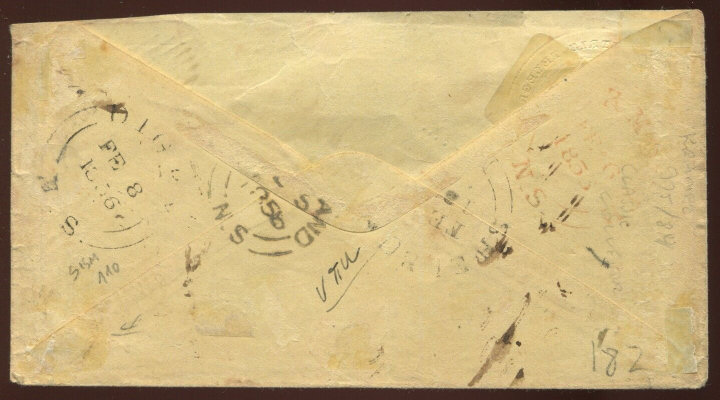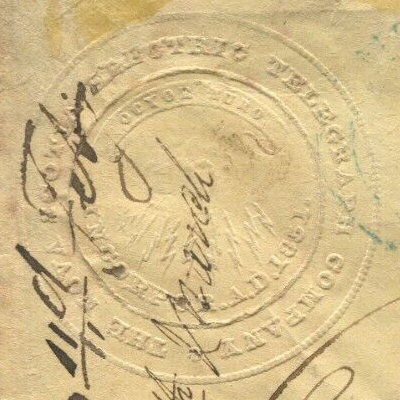| Up a level | ||||||||||||
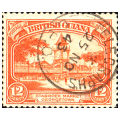 |
 |
 |
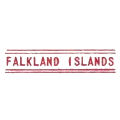 |
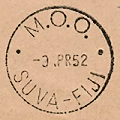 |
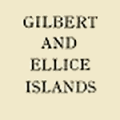 |
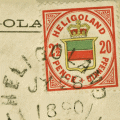 |
 |
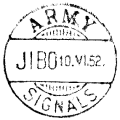 |
 |
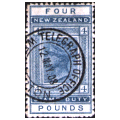 |
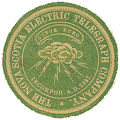 |
 |
| British Guiana | British Honduras | Cyprus | Falkland Is. | Fiji | Gilbert & Ellice Is. | Heligoland | Malta | Mauritius | Newfoundland | New Zealand | Nova Scotia | Papua, New Guinea |
Other Commonwealth or possessions.
Telegraphic materiel from those countries that did not issue telegraph stamps.
As an aside, it has been brought to my attention that during the second Anglo-Boer War, from about 1900 Prisoners of War were shipped out to various parts of the Commonwealth. Apparently Deadwood Camp and Broadbottom Camp at St. Helena were the first The Camps in Ceylon were clearly postmarked as such, including Telegraph stamps. Later 5000 men were split between 5 islands of Bermuda. Over 2000 were closely guarded on Darrell's Island. Morgan's Island held 884 men. Tucker's Island had 809, 607 on Burt's Island, and 35 on Port's Island where the hospital facilities were. These may not be so easy to identify. I would be interested in hearing from anyone that has anything that appears to be any of these. |
British Guiana
With one exception, all these images come courtesy of Les Bottomley
TELEGRAPHS / GEORGETOWN
1899.
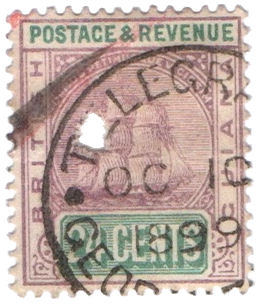
TELEGRAPHS / G.P.O.
1943.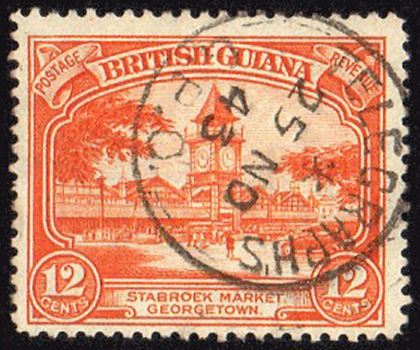
This image from Wiki Commons.
TELEGRAPH N.A. / BRITISH GUIANA
Seen from 1946 to 1949.
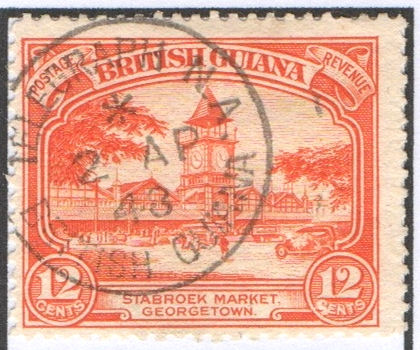
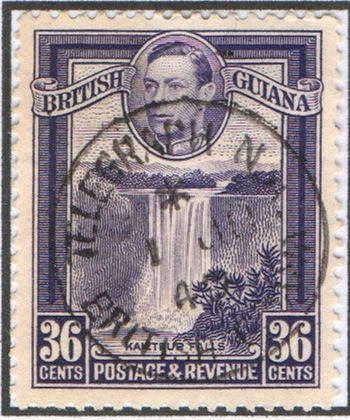
CENTRAL TELEGRAPHS / B.GUIANA
1947.
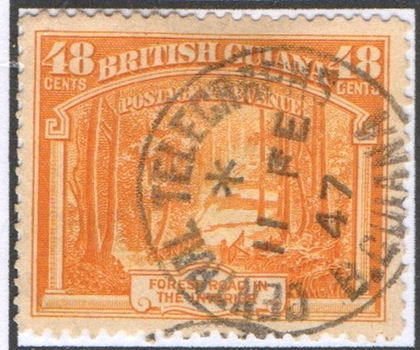
WIRELESS MACKENZIE / BR. GUIANA
1946.
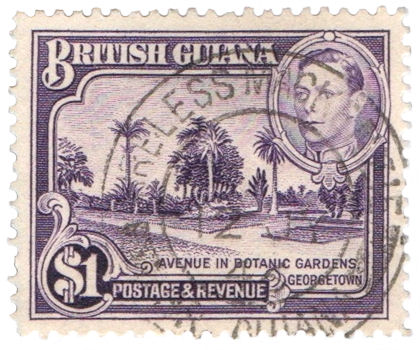
Mackenzie or McKenzie is on the Demerara River about 57 miles (91km) south of Georgetown.
A wireless-Telegraph station list for 1910 shows only Georgetown, which itself was not in the 1906 list.
British Honduras
Jeff Turnbull (well known to the Perfin Fraternity) has kindly sent me these images which he says relate to two dies recorded in the World Perfin catalogue.
The description there is "Telegram punch on Postal issues". I may be wrong (it is not unknown) but I take it that these were used as cancels,
perforated through stamps and form together, though the 50c with additional handstamp is a puzzle. The stamps are of 1938 and were used until 1953.
These are fairly high values as you would expect, but there were also $2 and $5 values.
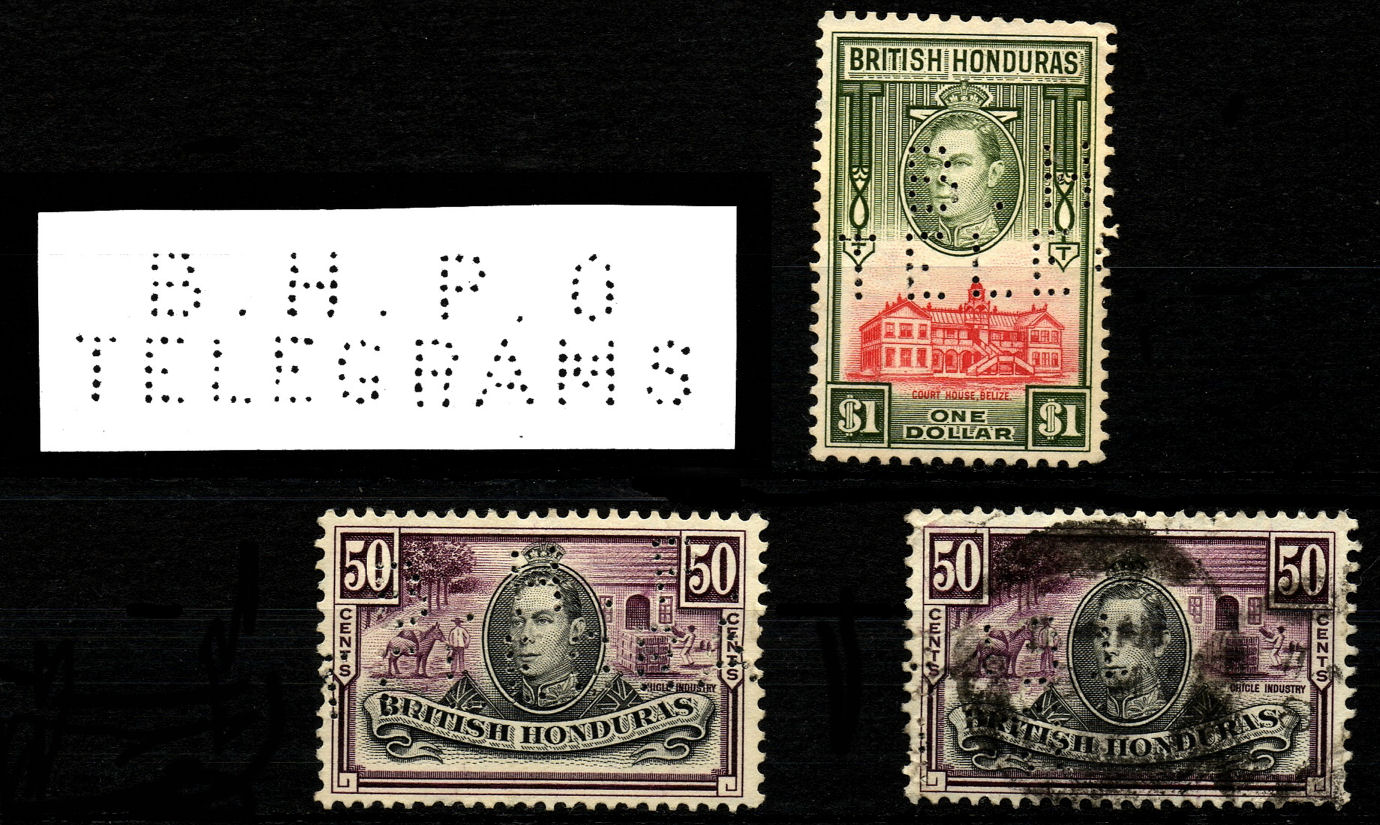
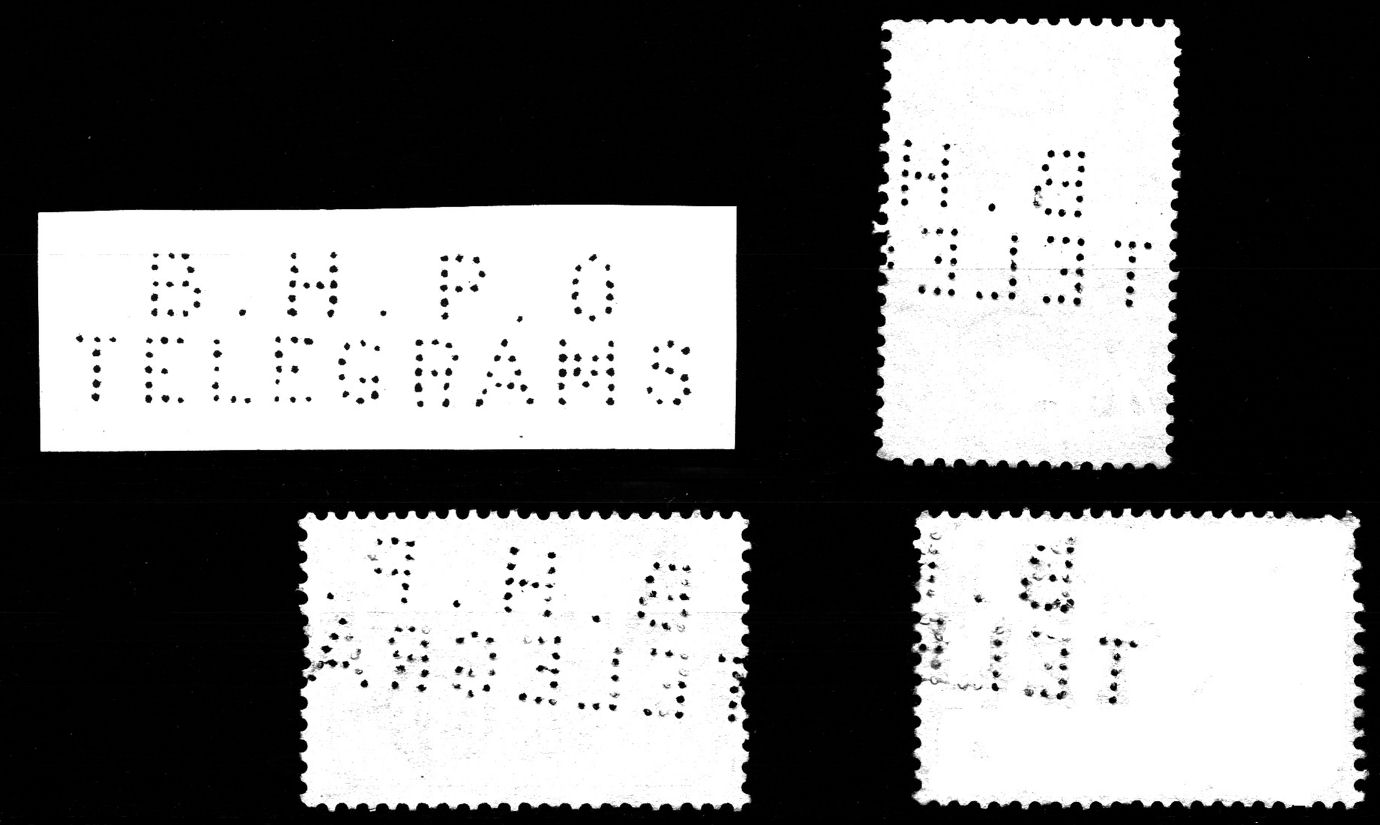

The perfins are at various angles and I think the usage was similar to that in Eritrea.
A quantity (15) of British Honduras stamps with a range of perfins, kindly provided by Matthew Stevenson.
Eight of them have parts of the perfin shown above.
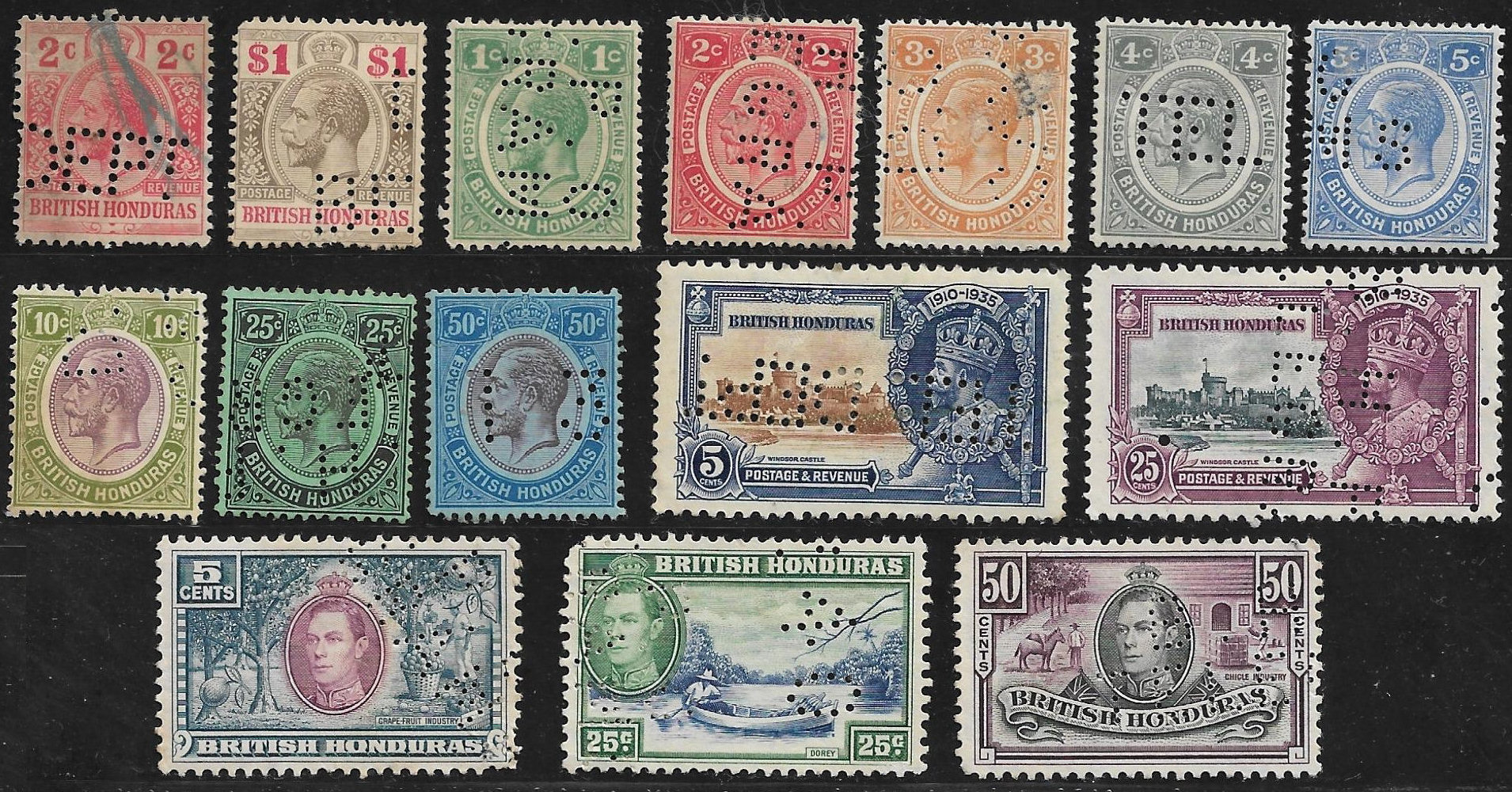
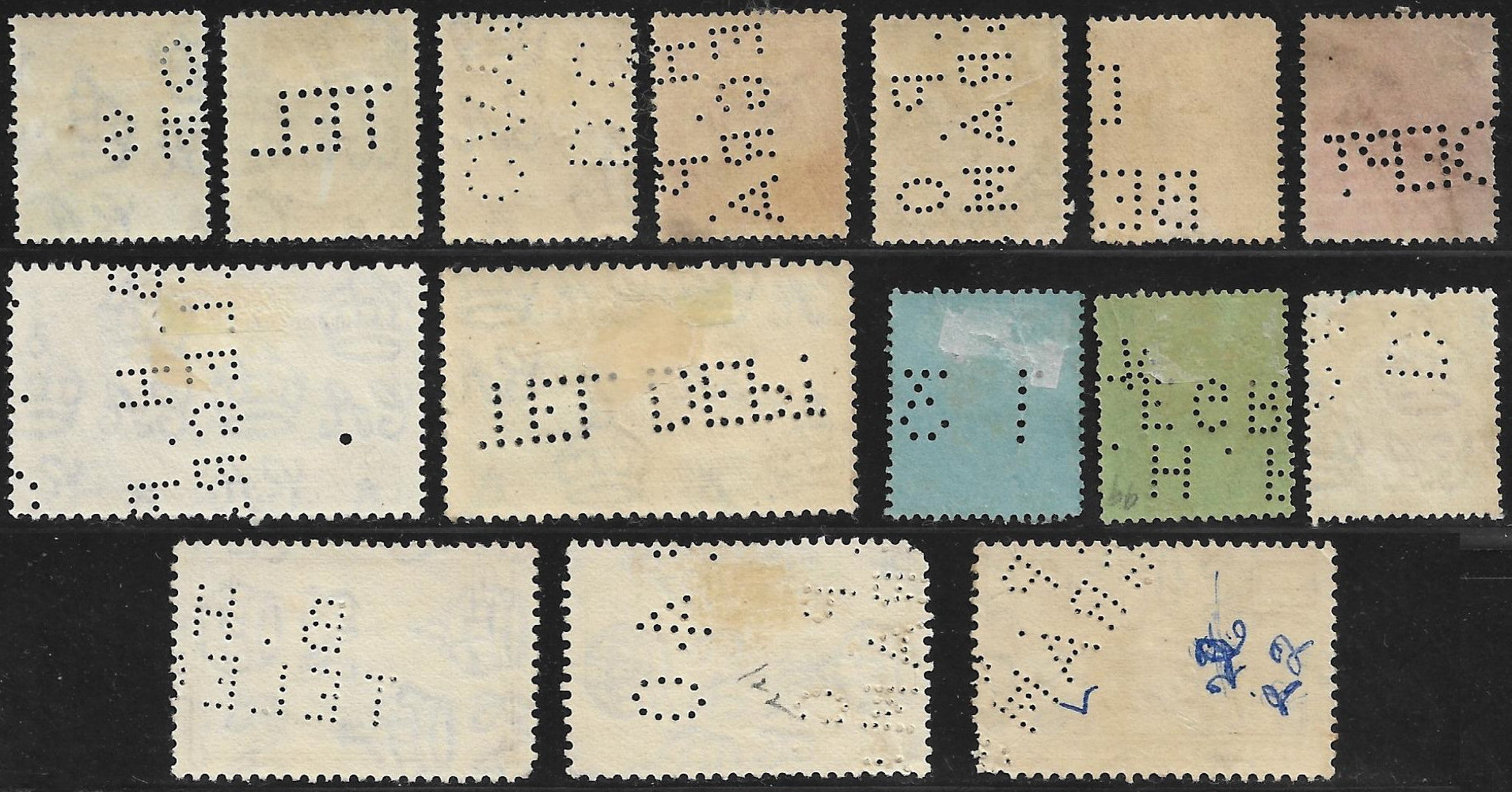
Three of them show parts of District Commissioner perfins. British Honduras is divided into six districts, each had a District Commissioner.
The $1 and 3c on the top row, and 10c below give examples of "D.C. / CAYO" and "D.C. / BELIZE". They are not telegraphic.
The other districts are Corozal, Toledo, Stann Creek and Orange Walk.
Did you notice the 50c blue in the middle with "13"?
Some, but not all, of the BHPO perfins have an associated date perfin in larger holes about 10½mm above it.
Here are 3 examples, the middle from Jeff Turnbull, the others from above.
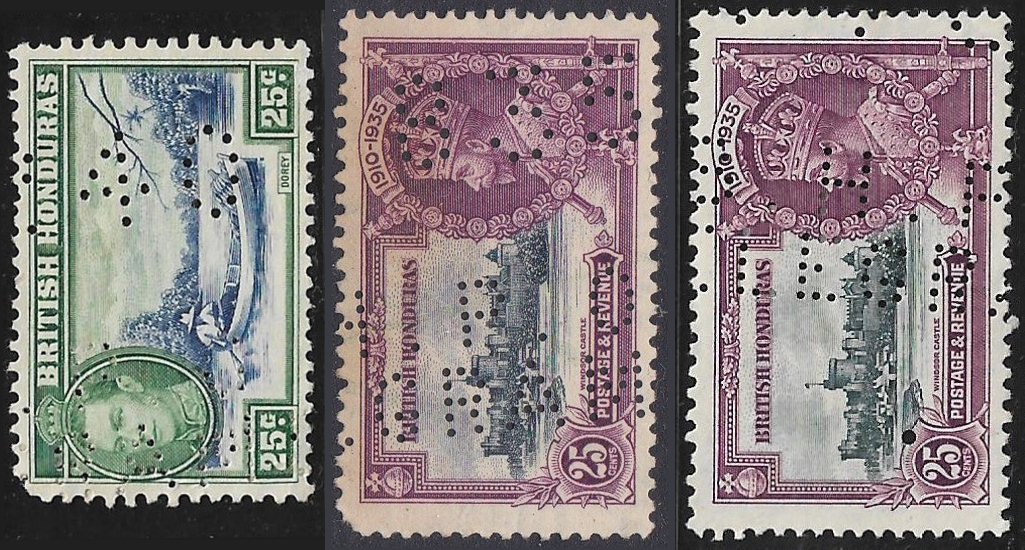
This is the backs of the outer two with the middle derived from the front of the one above.
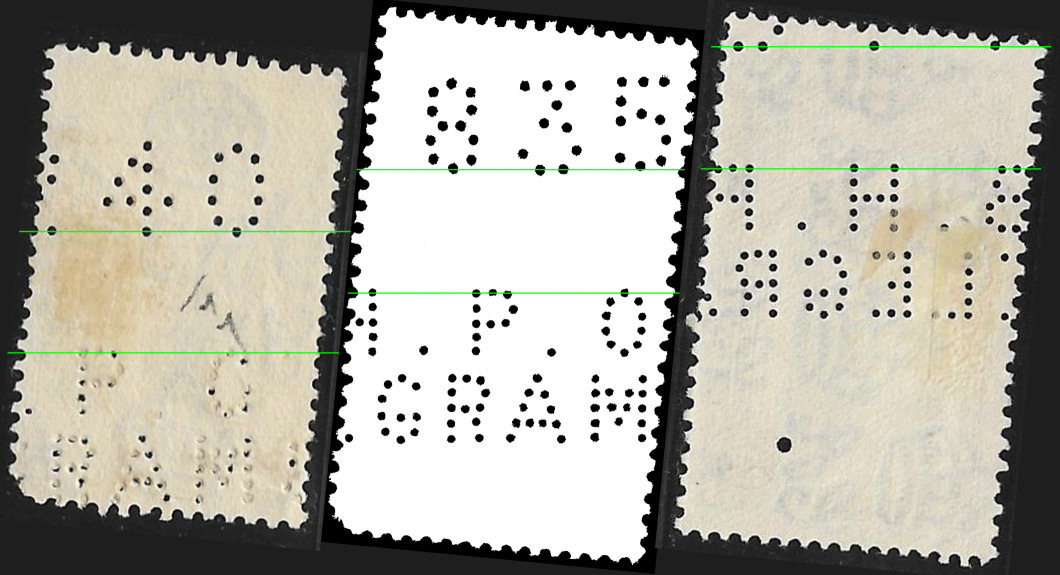
Interestingly, by rotating each by 4½ degrees, they nicely line up and the distance between the BHPO and date perfins can be measured.
Left to right, 10.25, 10.4 and 10.37mm, which given inherent inaccuracies, is surprisingly consistent.
The date format would seem to be one or two digits for the month, followed by 2 digits for the year, but the last shows there is something before that.
More images needed. - Next up, the other 25c !
Since the 25c figured prominently just above, I looked at the other 25c closely.
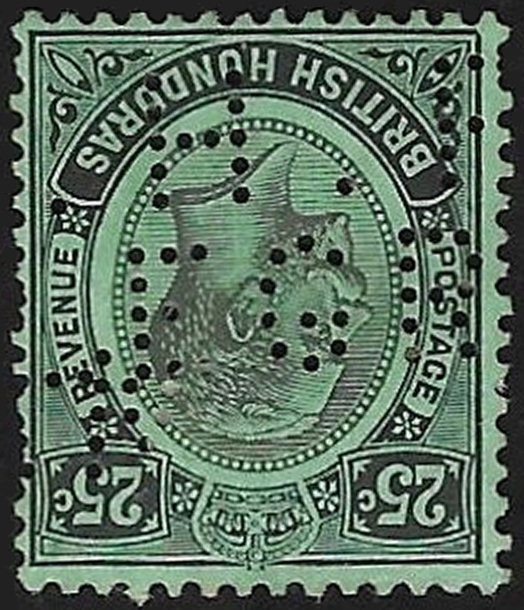
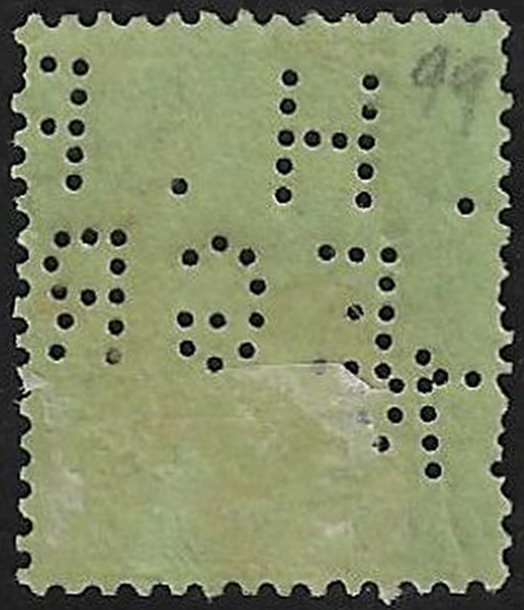
Though part of the BHPO perfin can be clearly recognised, there is something else extra at the bottom.
It is clearly not in the large-size holes as the date perfin though.
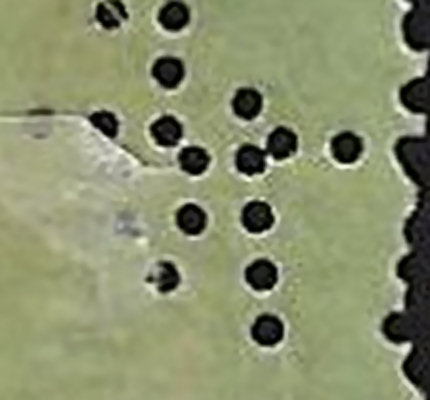
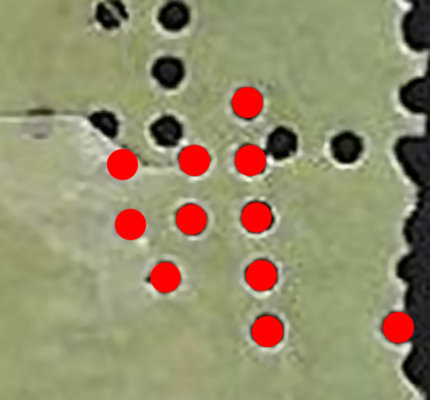
I have marked in red the extra holes. To me it looks like an incomplete ". M" reading right to left. Perhaps the end of "A. M." or "P. M."
I have no idea why it is incomplete. This could well be an earlier version. - But then, see below :
Re-visiting Jeff Turnbull's images of four stamps above those of Matthews, the first two also have extra perforations.
This is the 1c.
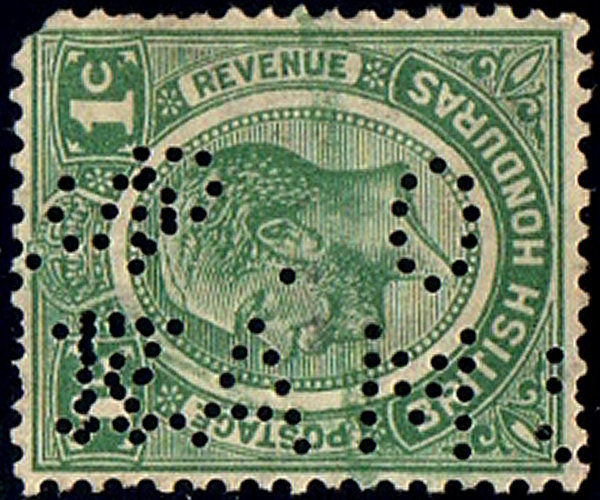
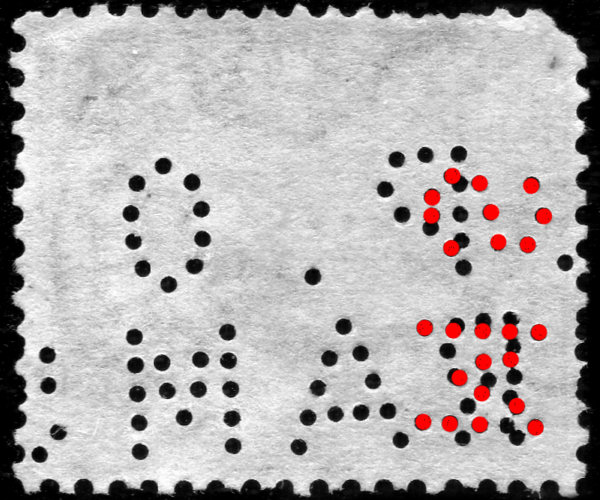
It has an extra "MS" of "TELEGRAMS" reading upwards, so the form was cancelled twice at approximately right-angles.
The gap on this is 10.2mm, but the angle is 21.3 degrees, rather than the 4.5 degrees of the others.
Images courtesy of Jeff Turnbull, who says :
"This type of die where one can change the date to suit is known as a Carpet die
they are often found on receipts and the like."
Cyprus
These may not be telegraphic, but they are punched high-values and are cancelled with "CANCELLED" in a box.
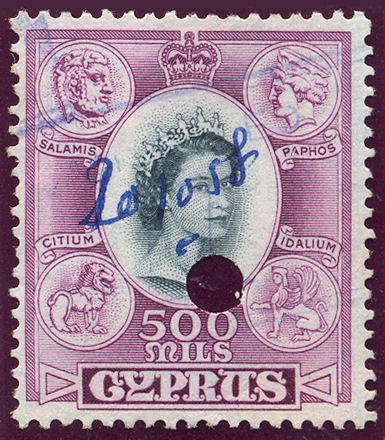
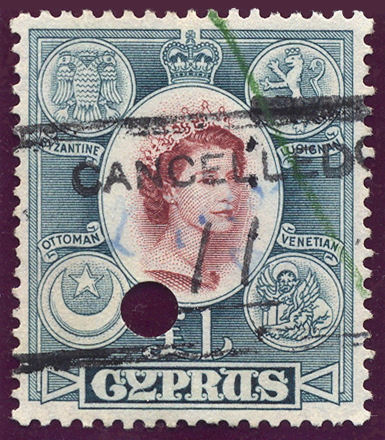
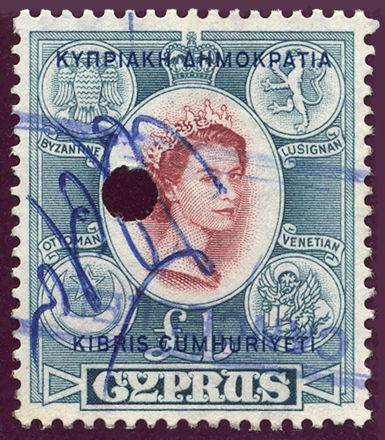
Images from RL.
Falkland Islands
I would have thought that they would have wireless telegraphy from an early date, but a U.S. Navy list of 1912 shows nothing for them.
According to Atlantic-cable.com, A cable was laid from Montevideo to the Falkland Islands for the Admiralty during the 1914-18 war,
but was abandoned afterwards. That suggests that by then they did have wireless communication.
The Dependencies were the first part of Antarctica to be brought under British control and date from 1908.
Unused red "Sent" form
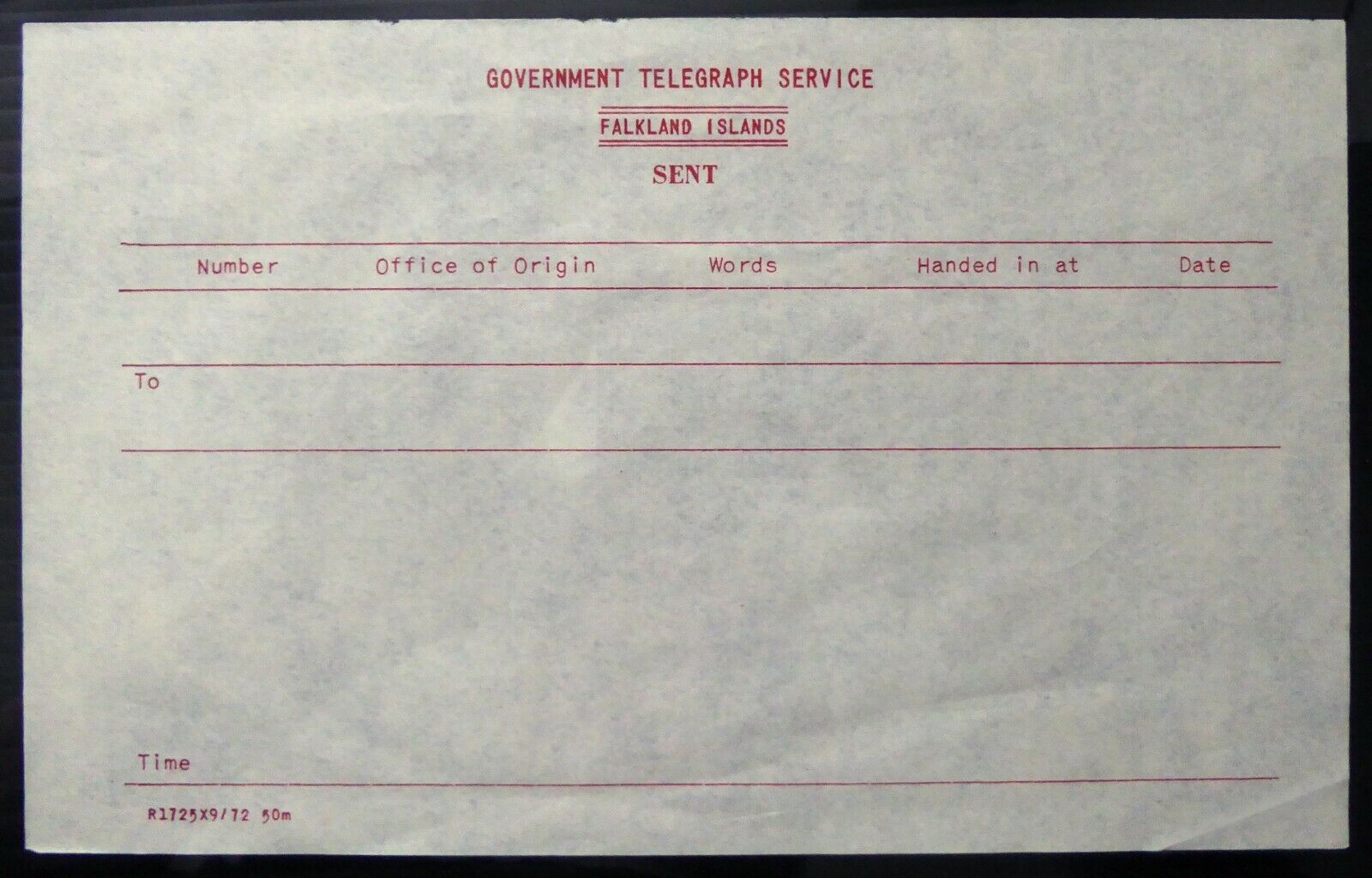
This has an imprint of "R1725x9/72 50m" at bottom-left, perhaps indicating a printing of September 1972.
Unused dark blue "Received" form with imprint of "P2538 P4776/32/401381 500 11/66 R. Ward 843" at top-left which I think indicates a printing of November 1966.

This is a short form, but appearts to be complete.
Unused dark blue "Received" form with "W. & S. Ltd" at top-left with the Dependencies included.
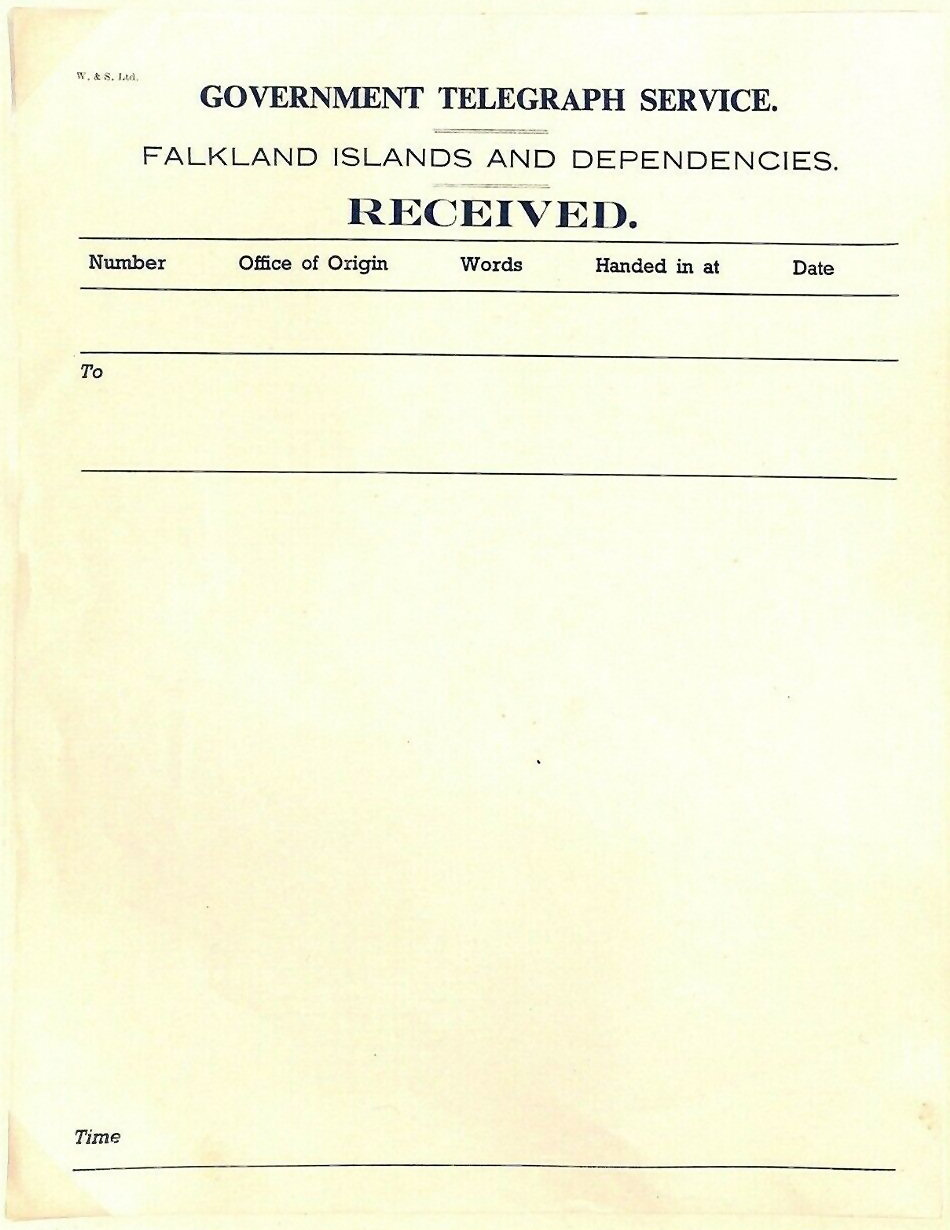
This is a much longer form. Image courtesy of Samwells Ltd.click image for eBay listing.
Fiji
Telegrams serve many purposes. This was instrumental in money transfer to the Money Order Office at Suva in Fiji on 3 April 1952
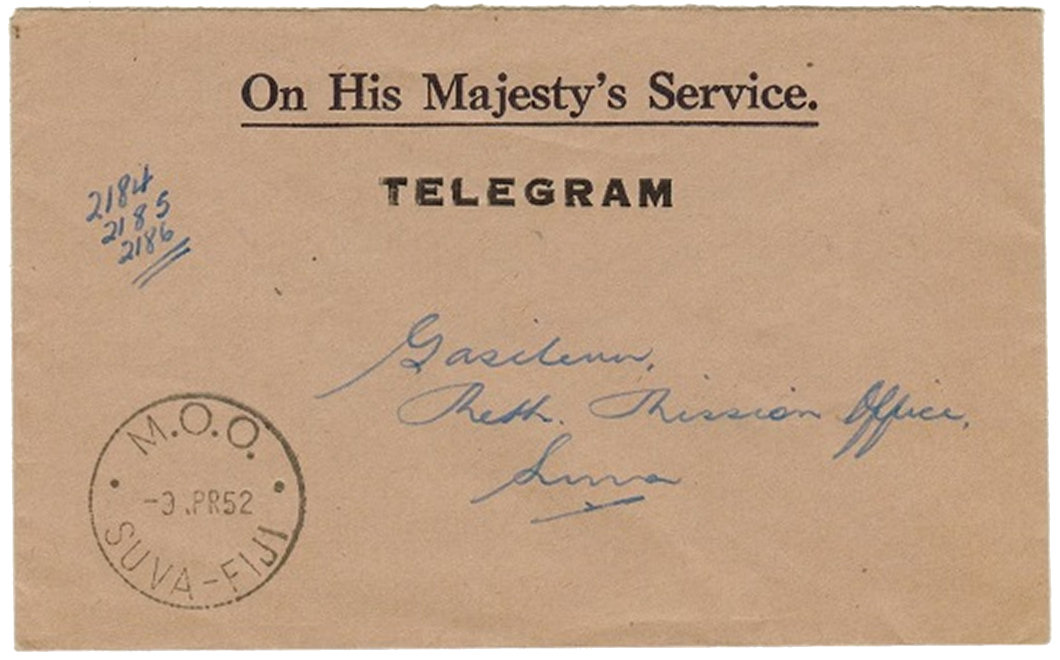
Image courtesy of SteveDrewett.com
Gilbert & Ellice Islands
Radio Telegraphs Form 1. Said to date from the 1940's or 1950's.

Image courtesy of SteveDrewett.com
Heligoland
Telegram of 3 August 1880.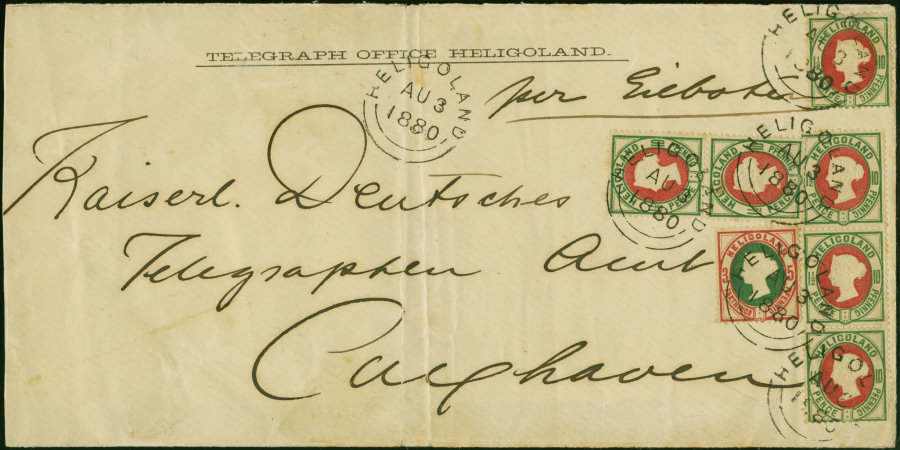

This has a Hamburg-Heligoland Telegraph Company backstamp.

Images courtesy of Heinrich Koehler Auktionshaus GmbH
Telegram of 29 March 1882.
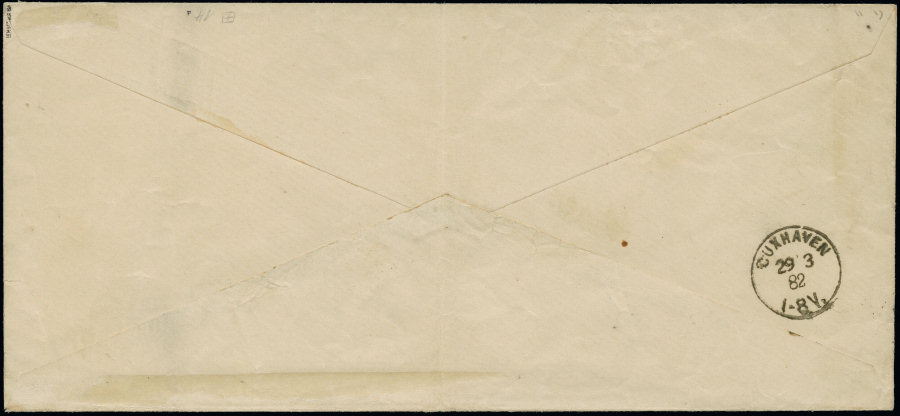
Images courtesy of Heinrich Koehler Auktionshaus GmbH
Telegram of 28 July 1890.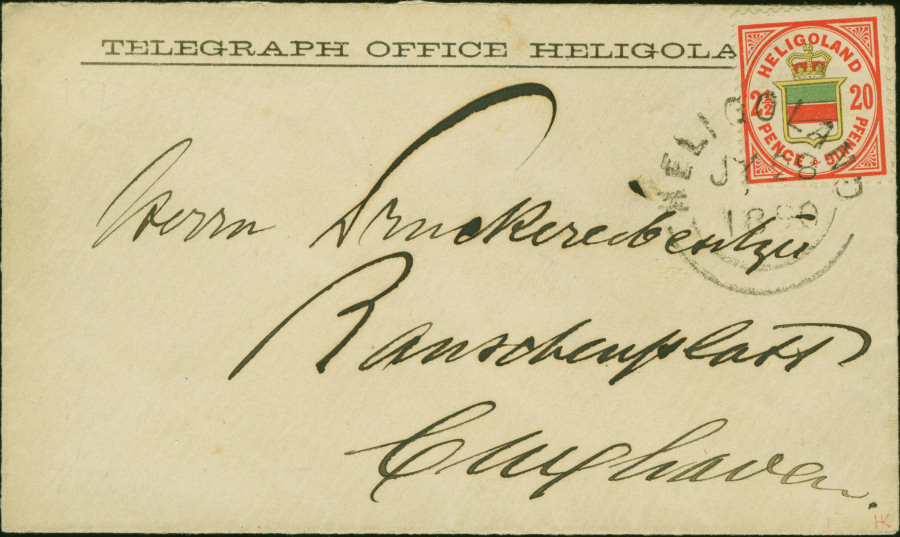
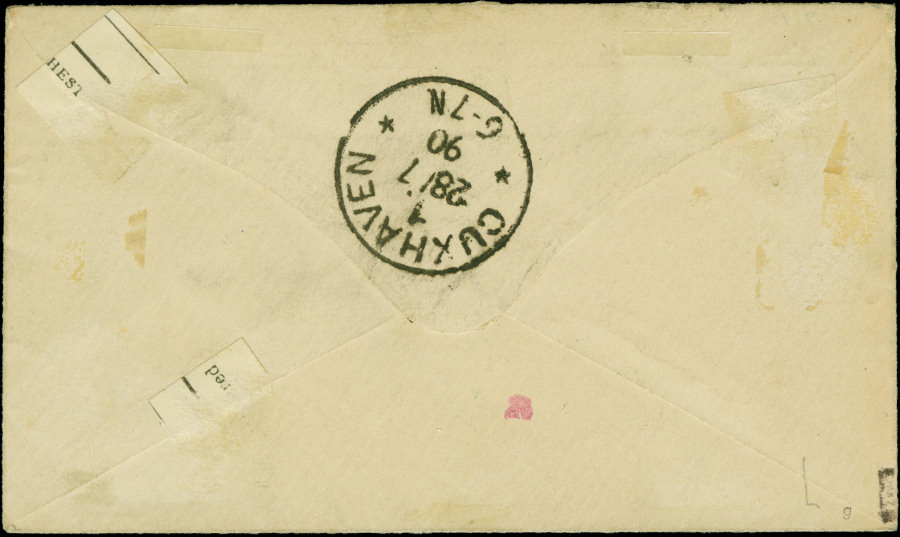
Images courtesy of Heinrich Koehler Auktionshaus GmbH
Malta
This may not be telegraphic, but is a punched high-value similar to Cyprus above.
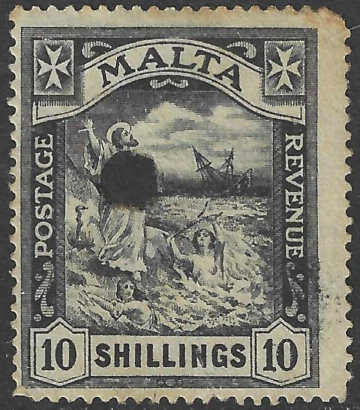
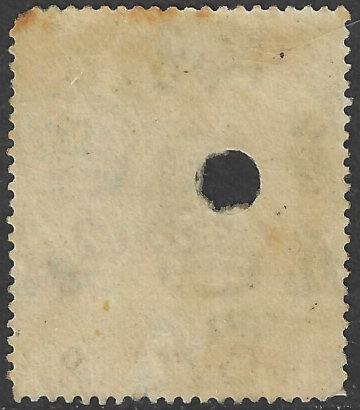
I normally get permission to use images from eBay, however eBay does not allow contact with the seller, James Gulliver, instead saying :
"We couldn't find an answer. Unfortunately, due to the high volume of messages this seller has received, they are unable to respond to your question right now.
We suggest reviewing the item again to see if your answer is in the seller's listing."
Since I cannot ask, I will fall back on the "fair use" doctrine and show it anyway. This is described as the 1921 issue and the watermark is visible on the back.
Seller stampsbyjamie, click image for listing.
Subsequent to the above.
Matthew Axiak has brought to my attention a series of similarly punched stamps being offered on eBay
on various customs / parcel post forms, such as this :
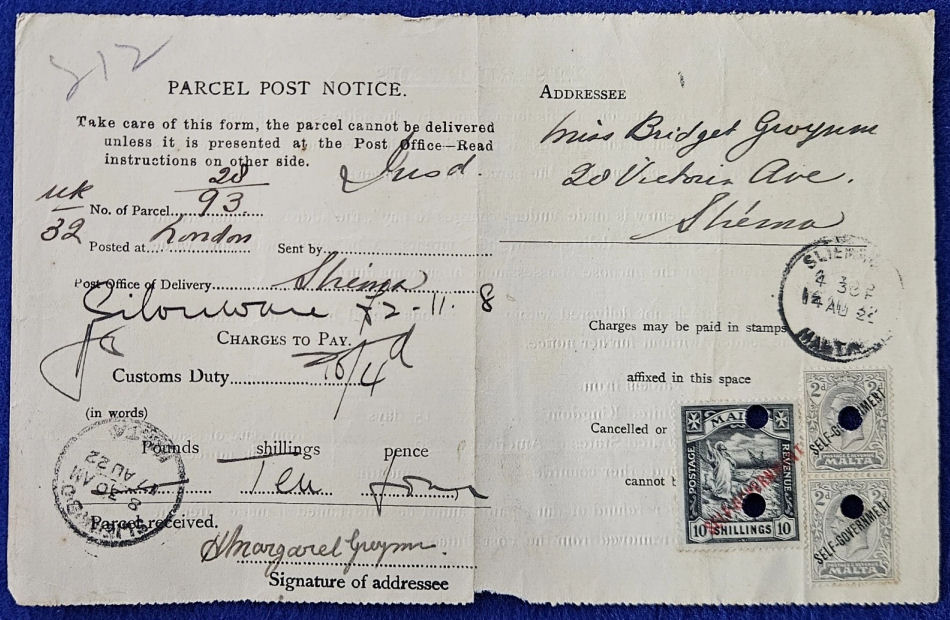
These are / were being sold by WorldRareStamps
I can still not ask, in fact any mention of a website now causes eBay to block communication.
The above stamp is therefor likely also paying for customs duty.
A Cable & Wireless receipt with telegram dated 20 May 1945.

A later receipt for £2 paid to register a telegraphic address of "KANEGOODS" for a year on 18 September 1967.
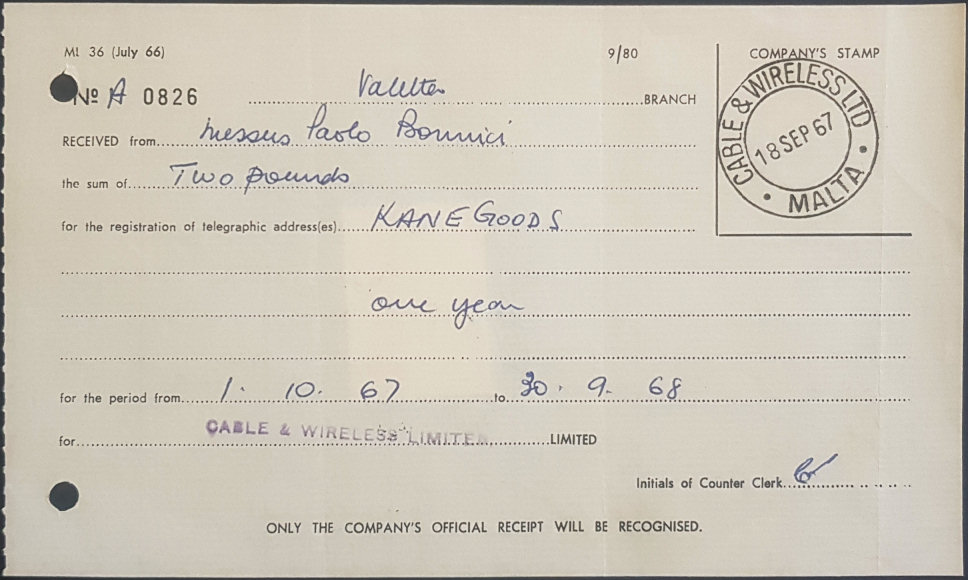
It has a date-stamp of Cable & Wireless, Malta.
The back has a 2d postage stamp to pay a receipt tax (on items from £2 to £100), which has the same C.D.S. on it.
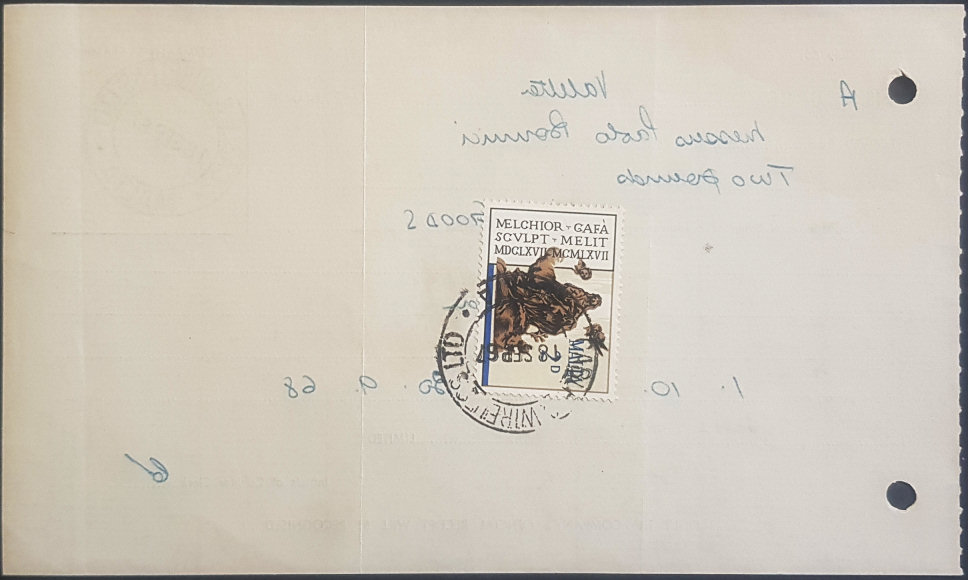
Other 2d (or less) postage stamps are likely to have similar hand-stamps on them for the same purpose.
These images are courtesy of Matthew Axiak, who tells me the rate was 1d before around 1931/32 and 4d from August 1970.
This became 1c7 after decimalisation in May 1972, and it rose to 2c sometime in the early 1980s before being abolished by the late '80s or early '90s.
Additionally, I show a number of items of stationery from Malta under the Eastern Telegraph Co.
Mauritius
The JIBO 10.VI.52. Army Signals cancel of 10 June 1952 indicates a military presence, presumably left over from WWII.
The next day the 2 stamps were cancelled at Port Louis on the Northwest coast.
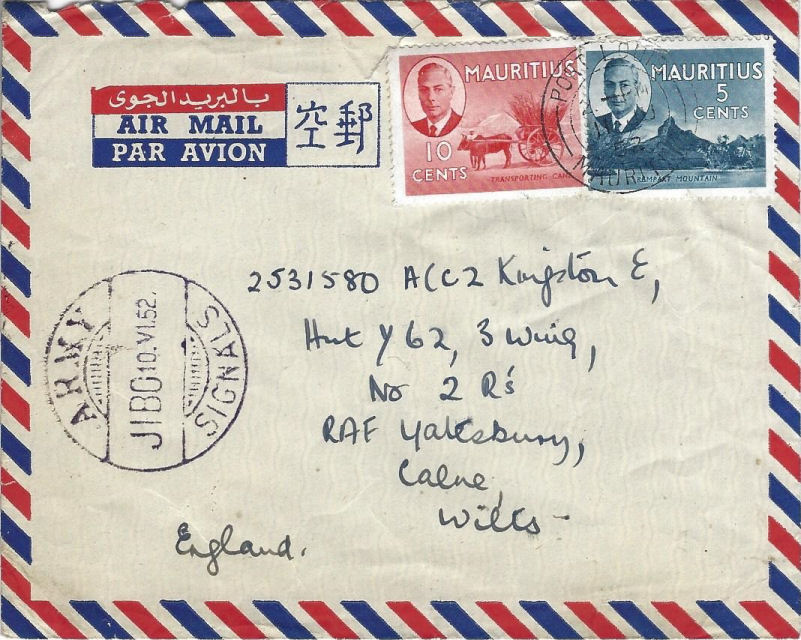
The image comes courtesy of Anders Uggla from Sweden, who tells me that the King's African Rifles Regiment was there at the time.
The code should either indicate this regiment, or perhaps the location of their camp.
The EIMM 3.XII.54. or possibly ETMM 3.XII.54. Army Signals cancel of 3 December 1954
A 2½d British stamp was added and cancelled the same day, again at Port Louis.
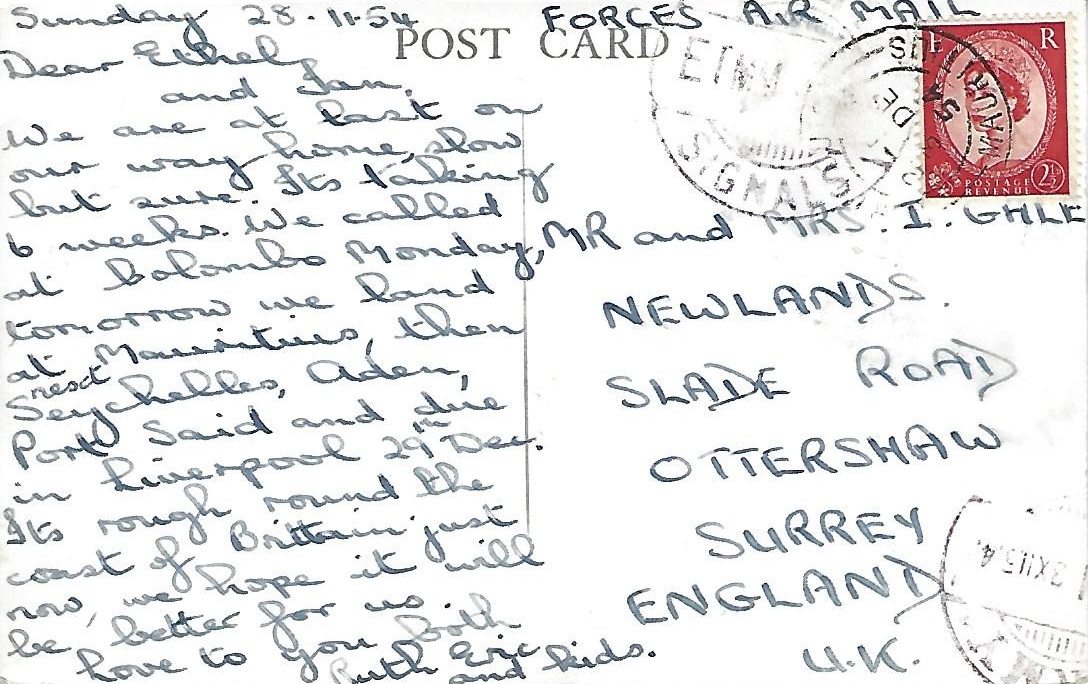
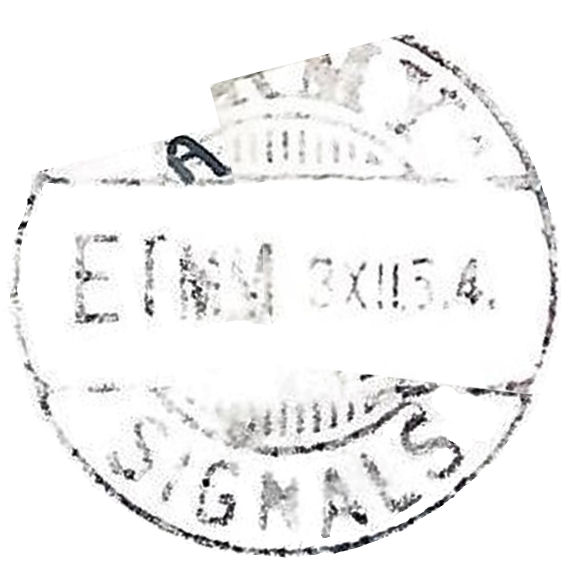
The other side indicates the location of the cabin where this was probably written aboard H. T. 'LANCASHIRE'
formerly HMT Lancashire before the mainmast was removed.
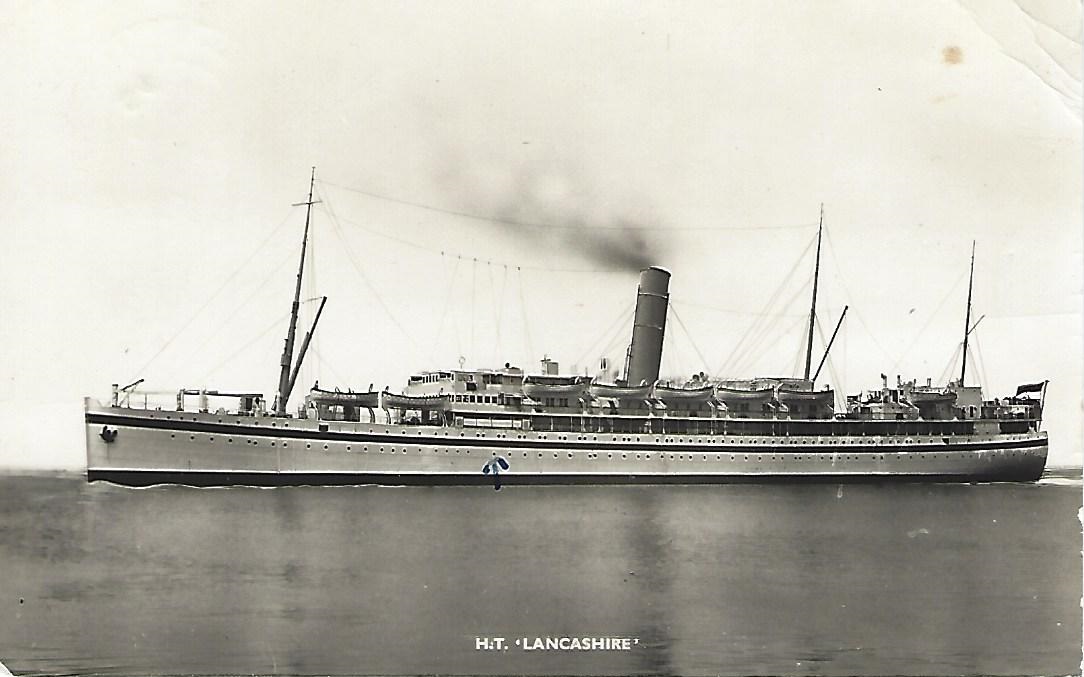
It was returning from the "Far East" back to Britain. The Army Signals cancel was presumably applied aboard the ship and the card handed to the
Mauritius postal authorities on docking. Images courtesy of Anders Uggla.
Newfoundland
Historically, due to its location, Newfoundland was important in establishing a transatlantic cable.
The telegraph usually develops together with the railway, so it is surprising that I have seen so little so far for Newfoundland.
Stamped "Postal Telegraphs / Stephenville Crossing." Railway envelope, dated 31 August 1927 to U.S.A.

Image courtesy of SteveDrewett.com
Stamped "Postal Telegraphs / Sandy Point, NEWF." envelope, dated 21 March 1930 to U.S.A.

Image courtesy of D.Morrison Ltd.
New Zealand
Victorian Stamp Duty Postal Fiscals used 1905, 1908 and 1912 for something related to Telegraphs.
It is by no means certain what exactly. The 3/- and 5/- could have been used to send a telegram,
but the £4 and £10 are perhaps more likely to have been used for accountancy purposses.
Does anyone know more about this usage ?
Stationery
Early "Telegraphic Message" envelope used in Auckland, dated 12 June 1896 (Arrived Glasgow 10 July 1896)

Image courtesy of D.Morrison Ltd.
Similar O.H.M.S. "Telegraphic Message" envelope used in Napier, dated 23 September 1922.
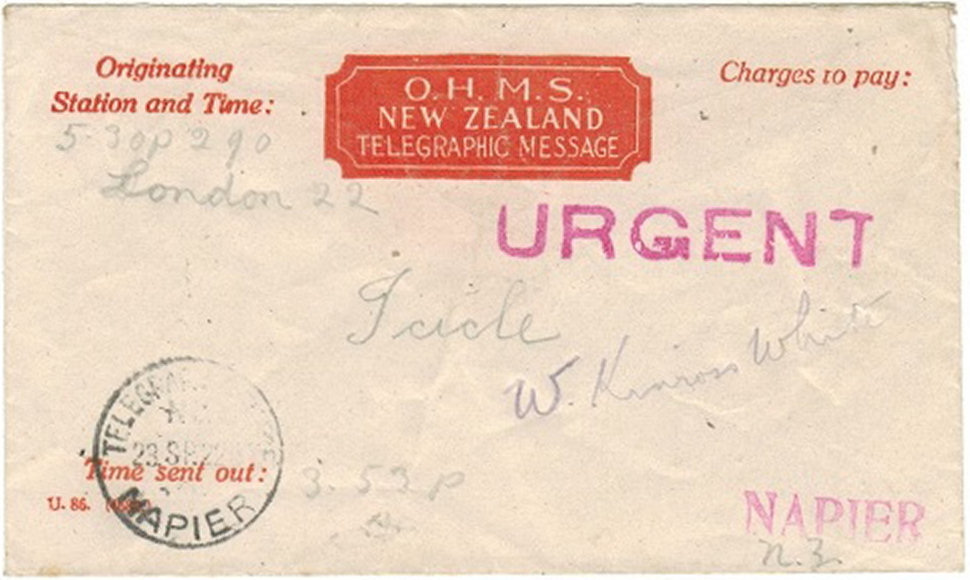
U.86. (4582?) at bottom left. Image courtesy of SteveDrewett.com
Sending Forms
Following the British convention, this is a Form A. Sending Form.
6d for 12 words, with 1d for each additional word.



Imprint at bottom-left with "No 171.)" on the left and a November 1904 printing date on the right.
Delivery Forms
This is a Form C. Delivery Form, used February 1913.
A reply was paid for.

A seal was used to hold this together and the top-left was damaged in opening it.
Cablegram dated 14 December 1945, in conjunction with Cable & Wireless Ltd.
Stamped "OVERSEA".
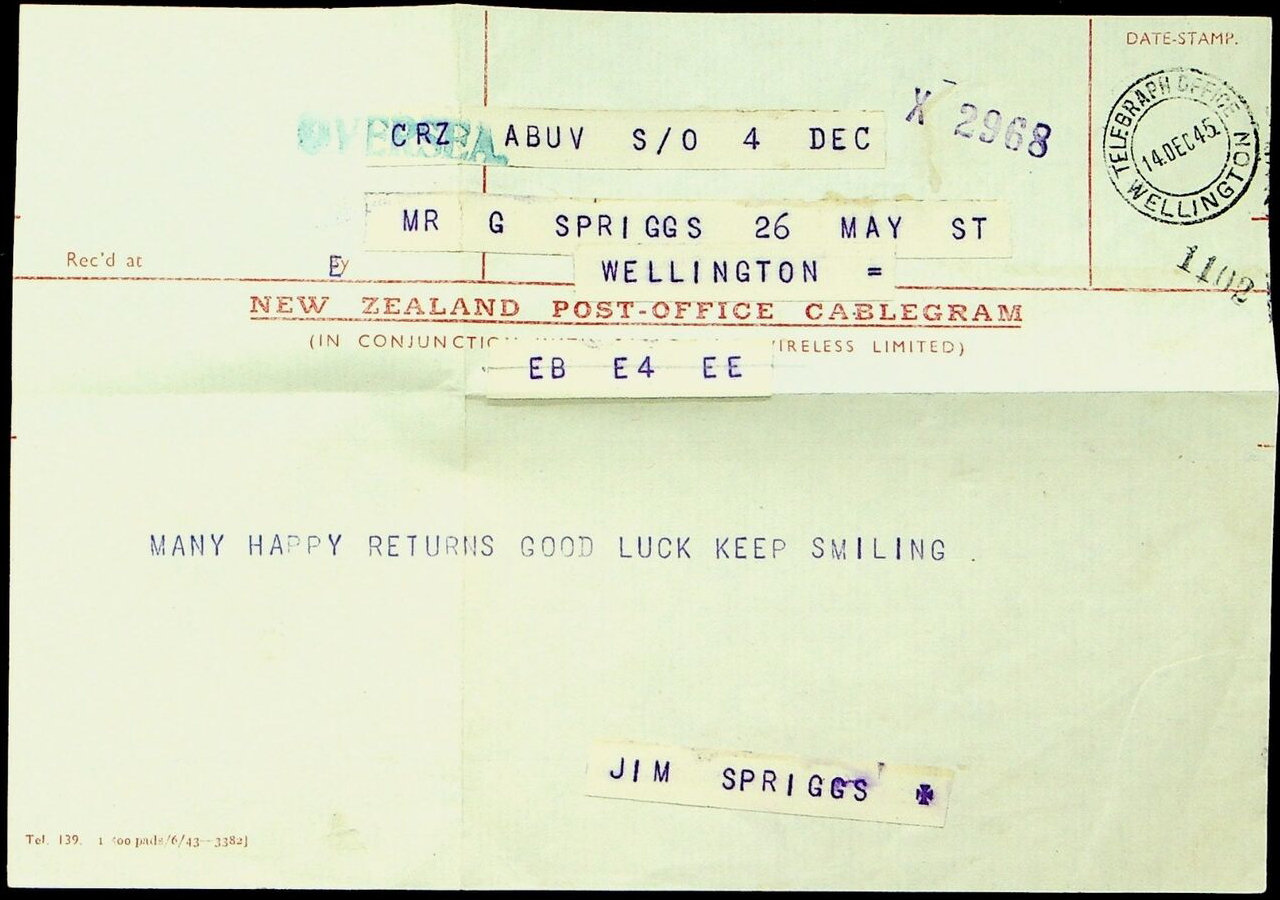
Imprint at bottom-left with "Tel. 139. 1 400 pads/6/43—3382J", which I take to imply that it was printed June 1943.
Back with envelope.
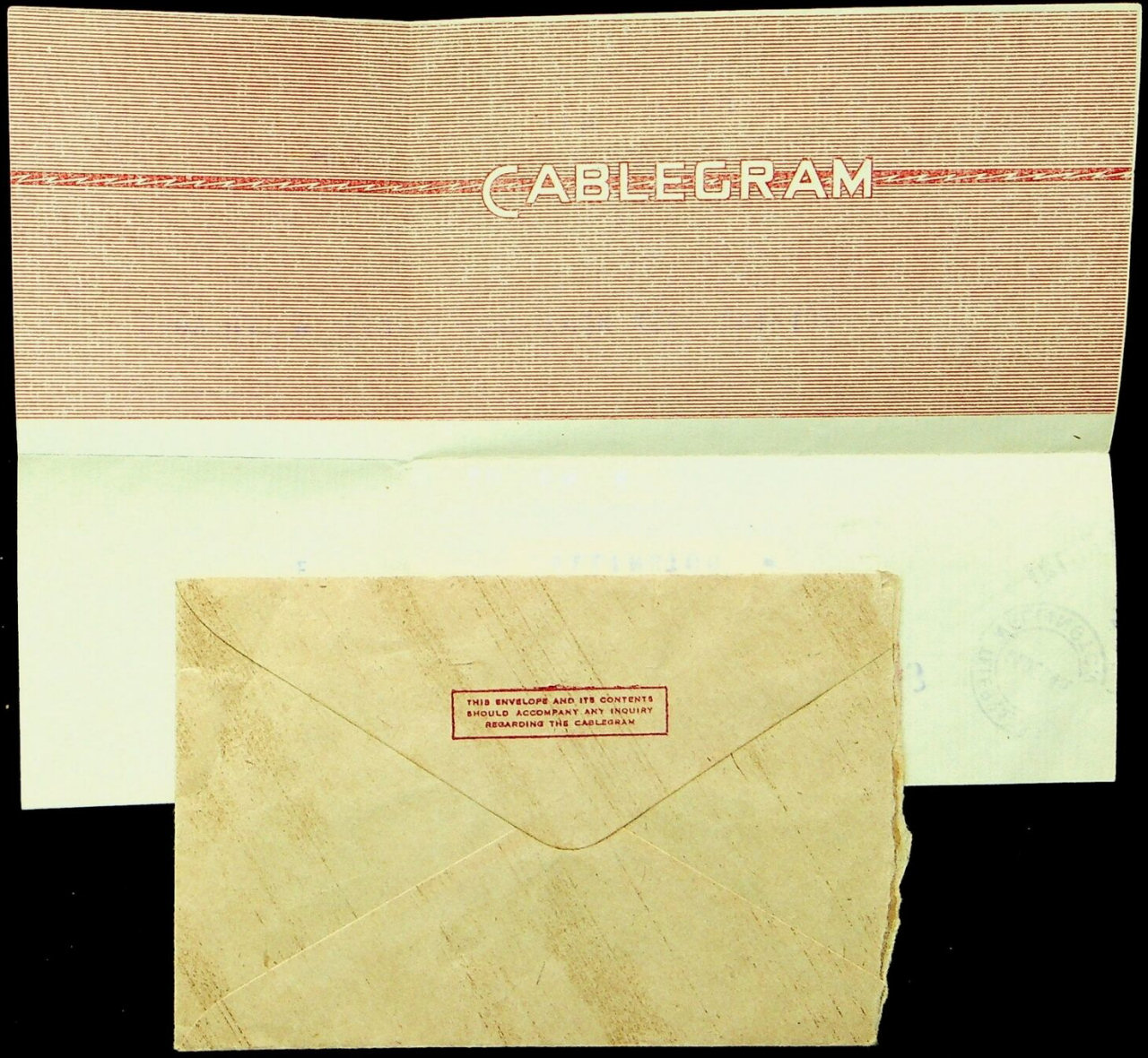
Envelope front.
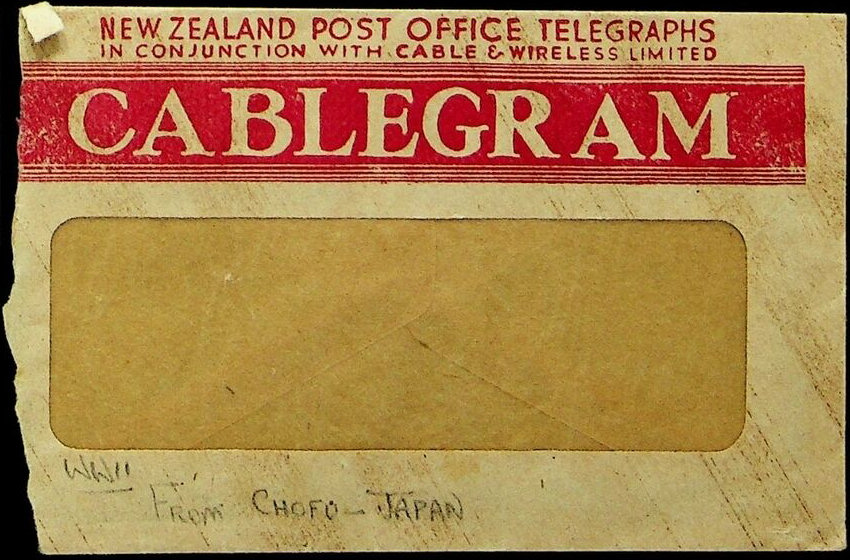
1945 Cablegram images courtesy of AsianStamp - (click an image for listing).
16 February 1959 Telegram envelope front and back.
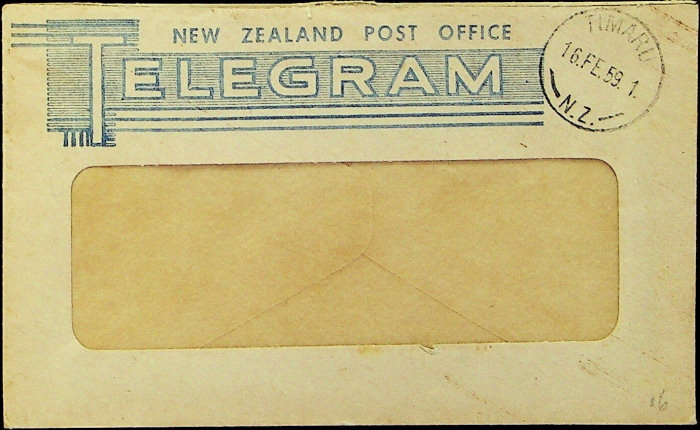
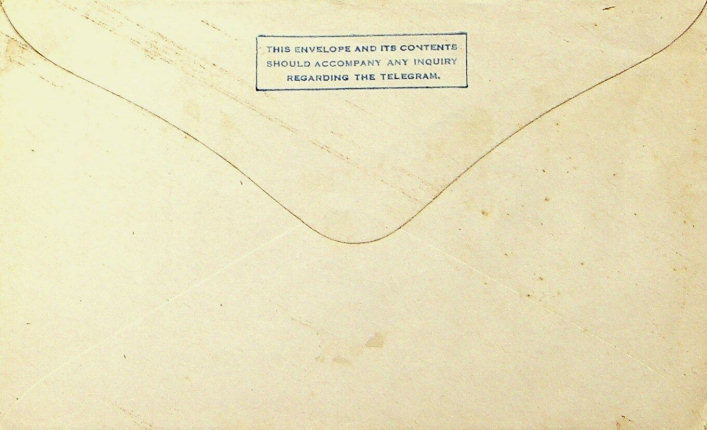
Telegram envelope of 1959, courtesy of AsianStamp - (click image for listing).
1962 Telegram envelope front and back.
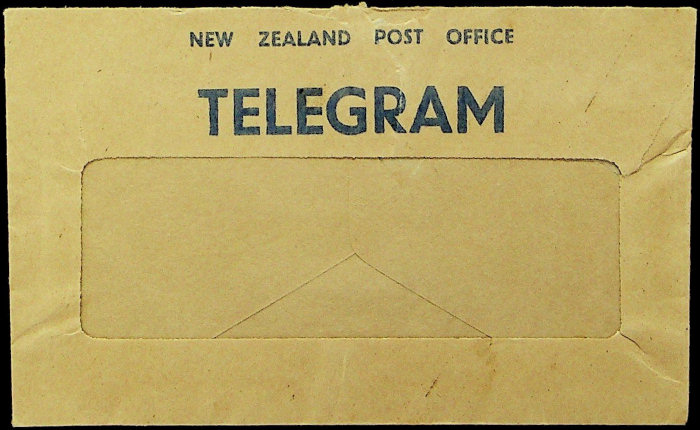
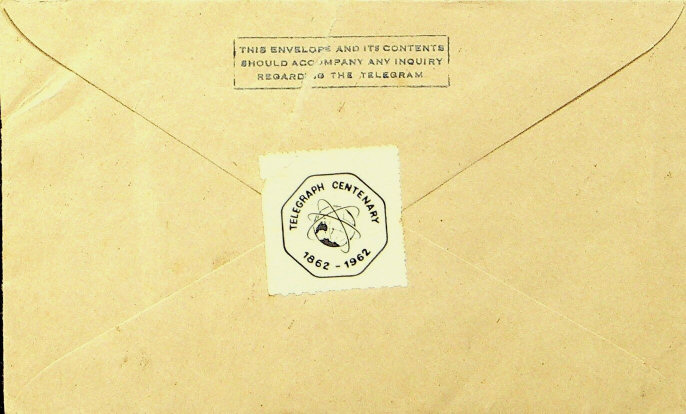
Telegram envelope of 1962, courtesy of AsianStamp - (click image for listing).
Telegram Seals.
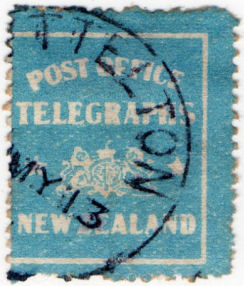
A few are known and shown in the section on seals.
Nova Scotia
The examples I show here pre-date the entry of Nova Scotia into the Dominion of Canada (1867).
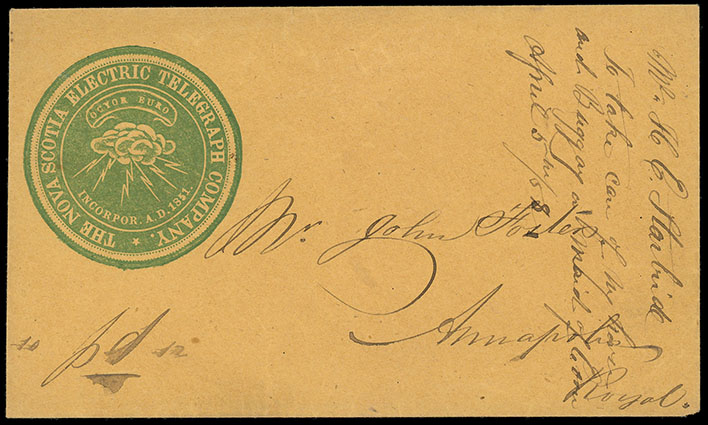
The Nova Scotia Electric Telegraph Company - incorporated 1851
This is 1858.
Courtesy of Schuyler Rumsey Philatelic Auctions. (click on image for listing).
Papua and New Guinea
The eastern half of a large island just to the north of Australia, the western half being part of Indonesia.
Posts & Telecommunications Telegram envelope dated 30 September 1908.
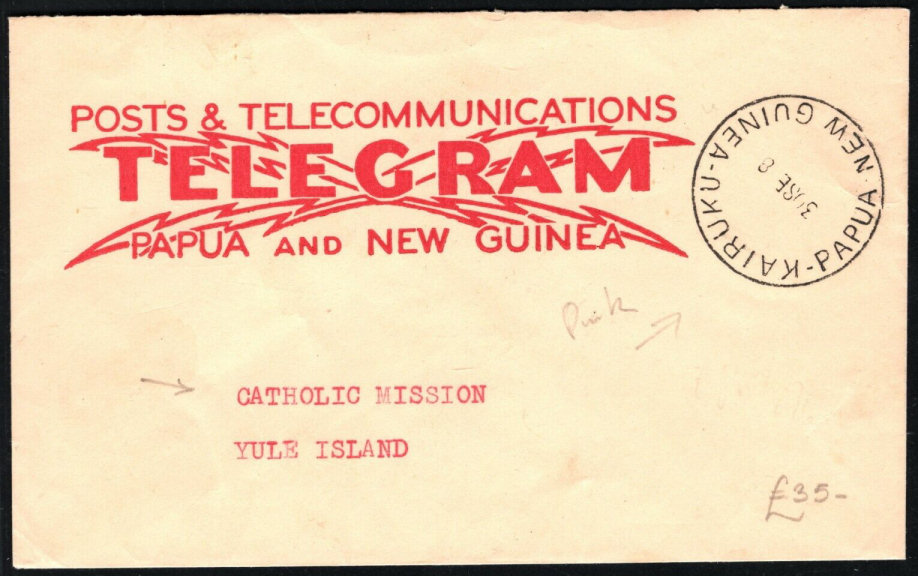
It was to Yule Island in Kairuku District. Image courtesy of Samwells Ltd.click image for eBay listing.
As always, If anyone can provide further information and/or scans to help with this page, I am happy to give appropriate credit.
